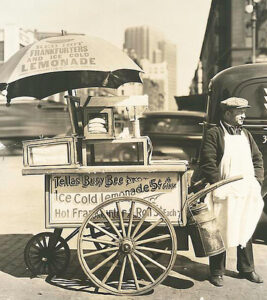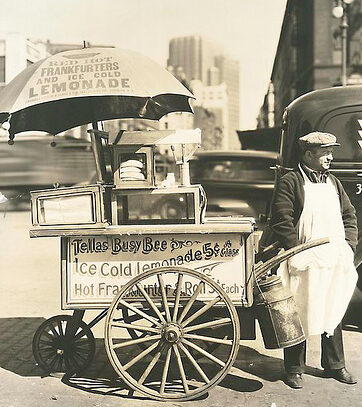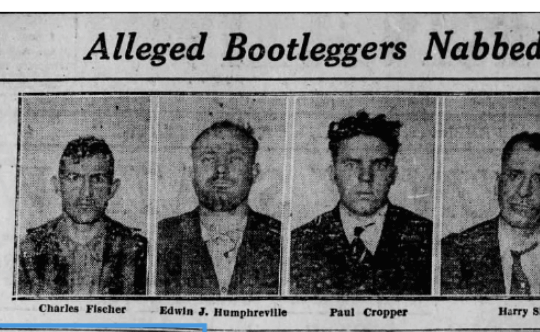By Anna Chiaradonna
In April of 1926, city police raided a hot dog stand at the corner of Farnum and Church Streets in Lancaster, Pennsylvania. Police seized five quarts of liquor and arrested the owner, Christ Nicholas, on charges of illegal possession and suspected sale of intoxicating liquor.

Nicholas’s stand wasn’t just serving hot dogs; he was allegedly serving booze during Prohibition. Prohibition, the nationwide ban on the production, sale, and transportation of alcohol, took effect in January of 1920, following the ratification of the 18th Amendment in 1919 and the passage of the Volstead Act, which codified the enforcement of the 18th Amendment. Although Pennsylvania elected a “dry” governor, Gifford Pinchot, to two terms during Prohibition (1923-1927, 1931-1935), the citizens were not enthusiastic about the ban on liquor sales. Resistance and corruption were widespread, especially in cities like Lancaster, where German American brewers had built significant brewing businesses and had little appetite for reform.

Today, hot dogs are an iconic American food, but in the early 20th century, they often carried a more unsavory reputation. Dubbed “dachshund sausages,” hot dogs were sometimes associated with grime and cime in newspaper accounts. Though German in origin, the hot dog was popularized in the U.S. by Nathan Handwerker, a Jewish immigrant from Poland, who launched what would become Nathan’s Famous on Coney Island in 1916. However, the food’s rise came alongside deep public suspicion. Upton Sinclair’s 1906 exposé The Jungle revealed the realities of sausage production in Chicago’s meatpacking plants and stoked fears about food safety. Readers were so revolted by depictions of sawdust and dead rats thrown into sausage meat that they sent a flood of letters to the White House, accelerating the passage of federal food safety laws. Furthermore, in 1922, Atlantic City police arrested two men for smuggling drugs hidden inside hot dog buns and, in 1932, men robbed a hot dog stand near the University of North Carolina in Chapel Hill because they assumed the owner of the stand was involved in bootlegging.

We should not be surprised to find evidence of a crackdown on liquor violations where Nicholas’s hot dog cart was located, in Lancaster’s 7th ward, the city’s poorest ward, which was a bustling neighborhood historically home to Russian, Greek, Italian, and Black residents. This neighborhood was home to Lancaster’s first Greek Orthodox Church, situated near a Black church and a Jewish synagogue.In Lancaster and across the country, the enforcement of the Volstead Act was selective, reflecting the era’s xenophobia and racial bias. Dry agents disproportionately targeted working-class and immigrant people, whom they accused of importing the rowdiness of saloon culture. Christ Nicholas was from a Greek family; he had a shoe shine stand and a delicatessen, which were popular start-up businesses for Greek immigrants. Many of the immigrants in this neighborhood were from southeastern Europe. Nativists accused these dark-skinned immigrants of being unassimilable and not fully white. Greek immigrants, for example, faced vigilante violence, boycotts, and employment discrimination. Arrests for violating the Volstead Act were concentrated in this area. Throughout the 1920s, officials conducted repeated raids on 7th ward homes and businesses, many owned by Black or immigrant residents. For instance, in January of 1926, police arrested eighteen Black residents and one white man during a raid on the Red Rooster Club at Mercer and Howard avenues. Lancaster raids followed national trends: agents targeted bootleggers on the margins, even though evidence suggests immigrants were less likely than native-born Americans to violate the law.
Although Nicholas was acquitted of selling whiskey, he was convicted in September of 1926 for illegal possession. His case is one of many that reveal how Prohibition was about more than the health and morality of liquor; it was also about regulating the visibility and movements of marginalized people under the guise of law and order.
Make your inbox more interesting. Subscribe to our newsletter for the latest scoop.




